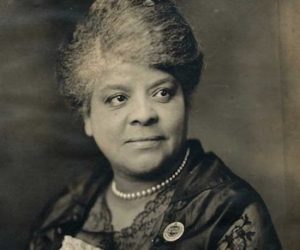
Ida B. WellsBarrett
On this date, in 1862, Ida Bell Wells-Barnett was born. She was a Black journalist, an advocate of civil, women's, and economic rights, and an anti-lynching crusader.
Ida B. Wells-Barnett, the first of eight children, was born six months before the enactment of the Emancipation Proclamation. She attended Rust College) in her hometown of Holly Springs, MS, until she was forced to drop out when her parents died of yellow fever in 1878. Following their deaths, Wells-Barnett supported herself and her siblings by working as a schoolteacher in rural Mississippi and Tennessee.
She took summer courses at Fisk University and continued to teach through 1891 when she was fired for writing an editorial that accused the Memphis school board of providing inadequate resources to segregated black schools. In May 1884, Wells-Barnett sued a railroad company after she was forced off a train for refusing to sit in the Jim Crow car designated for Blacks. In June 1895, she married Ferdinand Barnett. The couple had four children: Charles, Herman, Ida B., and Alfreda.
From there, Wells-Barnett embarked on a career in journalism when she wrote for the Chicago Conservator. She was elected editor of The Evening Star and then The Living Way, weekly church newspapers in Memphis. She also wrote and edited the Memphis Free Speech newspaper. Her articles, written under the alias "Iola," were direct and aggressive.
Two editorials she wrote in 1892, in response to the persecution and eventual lynching of three Black businessmen, were particularly controversial. The first encouraged Blacks to leave Memphis for Oklahoma and to boycott segregated transportation. The second suggested that white women were often willing initiators in interracial relationships. In 1895, she published an analysis of lynching called “A Red Record.”
She helped to found the National Association of Colored Women in 1896, the Negro Fellowship League, and the NAACP in 1909. During the last 15 years of her life, Wells-Barnett wrote extensively on the 1917 race riots in East St. Louis (1917), Chicago (1919), and Arkansas (1922). She continued to promote civil rights and justice for African Americans. In honor of her legacy, a low-income housing project in Chicago was named after her in 1941, and 1990, the U.S. Postal Service issued an Ida B. Wells-Barnett stamp. A champion of publishing the intersectionality of black women and humanity in America, Ida B. Wells died on March 25, 1931, in Chicago, Ill.
Black Women in America: An Historical Encyclopedia
Volumes 1 and 2, edited by Darlene Clark Hine
Copyright 1993, Carlson Publishing Inc., Brooklyn, New York
ISBN 0-926019-61-9